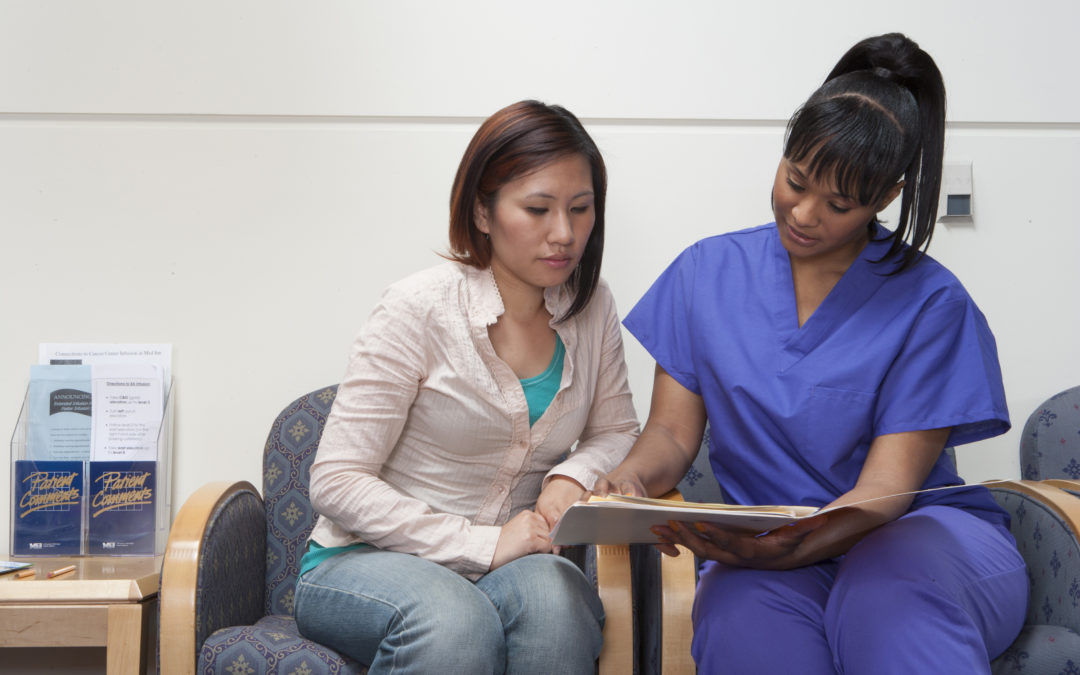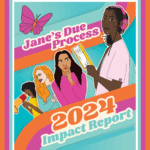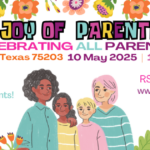I am no stranger to teen pregnancy; in fact, you might say it’s a tradition in my family. On both sides. My mom gave birth to me when she was 17. My sister gave birth to my first niece at 19 (and my second niece at 20). My cousin had a baby at 15. And it doesn’t stop just there! This tradition extends even to my non-blood-related family. My step-sibling had my third niece at 19… and on and on and on… And hey no judgement! I love all my nieces and cousins and precocious family members — but only one of those babies was “planned”. In my family, if you get knocked up, you become a parent. Period. There are no other options. I spent a short time working for the Texas Campaign to Prevent Teen Pregnancy and joked in my interview that if preventing teen pregnancy in your own family was a prerequisite, we could cut the interview short and both agree to move on.
Texas has the 5th highest teen pregnancy rate in the country and the highest repeat teen pregnancy rate. Wow! In 2015, 48% of these teen moms were Hispanic, 34% were Black and 21% were White. Teen pregnancy disproportionately occurs in minority families like mine and I’ve seen first hand the unique struggles that teen parents face. Parenting, no matter your age, is hardly a cakewalk; however, babies born to teen mothers are more likely to be born prematurely and have a low birth weight — no way around it, teen pregnancy has unique obstacles.
I was extremely careful not to get pregnant as a teen. In fact, though I advocate for evidence-based contraception, I practiced abstinence until I was 20. Literally. So. Careful. I had sex for the first time on a Sunday and walked into Planned Parenthood at 9:00 am that next Monday morning. I honestly don’t know how I knew about Planned Parenthood. We didn’t have one where I grew up in the Texas Panhandle. I was in college in Boulder, CO when I sought Planned Parenthood’s services; I guess I must’ve googled it?
I showed up alone, hopeful that I could figure the whole ‘going to the doctor to get birth control thing’ without any previous experience or education to guide me. I didn’t know anything about female reproductive health. I, like so many teenage women, was never given the opportunity to learn about female reproductive health or sex education. The only time I had ever done anything that even remotely dealt with my reproductive health was when I was in high school and saw a doctor for unusually painful menstrual periods. And that experience ended in disaster.
I’ll never forget how grown-up I felt showing up for myself, filling out my insurance forms and talking honestly about my sex life with my doctor. I had never talked about it like that before. There was no shame — though, and I’m so sad that this is true, I braced myself for shame. I was prepared to defend my honor! I’m in love! It’s on my own terms! I wanted this! But, I never had to. We were two women talking honestly about sex — like, what even, y’all?! I walked into Planned Parenthood trying to be an adult about my sex life, and walked out an empowered woman. I don’t remember now what form of birth control I walked out of there with; though, I think I tried everything over the course of a few years. Eventually I received a free IUD because Colorado’s State Legislature funds important programs aimed at preventing unplanned pregnancies. And, shocker, it works.
A few weeks after my first visit to Planned Parenthood, I answered a phone call from my mother and stepdad, 6 hours away in the Texas Panhandle. My mother was frantic and my step-dad was silent.
“I got a bill from Planned Parenthood” – She accused.
I said nothing and began to think… I did use the insurance my parents provided, and the insurance company must have sent them a bill. I wasn’t ashamed for handling my own life, but her reaction and the shock of them knowing I went to Planned Parenthood momentarily stunned me.
“Did you get an abortion?! Don’t tell me if you did, Lorraine… Did you get an abortion?” – she continued to be frantic…
“Um. No? I went to get birth control. You know, to handle my business like an adult woman.” – I said sassily because the ‘stun’ was wearing off and self-righteousness was knocking.
She kept on repeating her question, begging me to tell her the truth and pleading with me not to. She didn’t hear a word I was saying, though. I knew my family was anti-choice, but I did not realize how unsupportive they would actually be in that situation until that phone call. It was puzzling. And infuriating.
It took weeks, but my mom and I finally decided to have ‘the talk’ (after 20 years and being newly sexually active). In no uncertain terms, I let her know that I am the one making decisions for myself and that I’m pro-choice through and through. I told her, “By the way, Mom, if I get an abortion, I’m not going to lie about it, I’m going to feel empowered in the same way I felt after leaving Planned Parenthood for the first time, a strong woman handling my life”… In no uncertain terms, she told me to never tell her if I do get an abortion. This wasn’t an ‘agree to disagree’ conversation. This was a ‘we disagree and there’s no compromise here’ situation.
It’s been over 6 years since then and every now and then my mom still asks me if I had an abortion all those years ago, still begging for the truth but pleading for me to lie. And if not then, since? Now, I roll my eyes. “I’m not going to lie to you, Mom. If I did and you ask, you’ll know.”
“Lorraine, seriously, don’t tell me.” – she always responds after asking the question.
I’ll be honest, I was pretty confused, but I should have realized that my parents would get an invoice since I used their insurance. In the end, that mysterious invoice sparked an important conversation that I, weirdly, remember fondly. It was insightful. Teenage and unplanned pregnancies are a common occurrence in my family and I totally know why – we meet them with aggression, confusion and shame. The stigmatization of female reproductive health and education comes with a hard cost and my family has and is paying it. Armed with this experience, I now have regular conversations with my teenage brother about consent and contraception. I plan on buying my nieces a children’s book called, “What Makes a Baby?” by Cory Silverberg in a few years. Maybe I won’t prevent teen and unwanted pregnancies in all of Texas — but maybe I can help prevent it in my own family.




